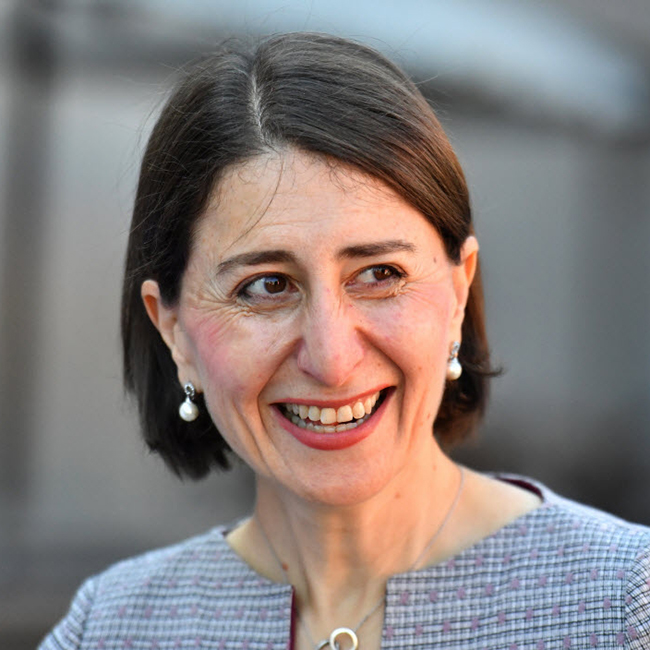
Ethics Explainer: Testimonial Injustice
Opinion + AnalysisPolitics + Human Rights
BY The Ethics Centre Eleanor Gordon Smith 22 SEP 2020
Telling people things – or giving ‘testimony’ – is one of our quickest, oldest, and most natural ways of adding to human stores of knowledge.
Philosophers have spent thousands of years wondering when, and why, certain beliefs count as knowledge – and when certain beliefs count as justified. Many agree that when we are told something by someone reliable, trustworthy, and in possession of the facts, their testimony can be enough to justify a belief in what they say.
I can tell you that it will rain later, you can tell me which way the train station is, we can both go to a lecture by an expert and walk away knowing more.
But we can’t accept all the information we hear from other people. Not all testimony can ground knowledge – some of it is lies, errors or opinion. That’s why credibility is important to the process of learning by being told.
The enlightenment philosopher David Hume argued that we shouldn’t set our standing levels of credibility too high: he thought “testimonial beliefs” were only justified when we had back-up justification from other sources like our own eyes, readings, and observations.
Immanuel Kant, by contrast, thought that we had a “presumptive duty” to believe what our fellow humans told us, since believing them was a mark of respect.
Regardless of the debate about how much credibility we should give people, there’s no denying that how much credibility we do give plays a big role in what we can learn from each other, and whether we learn anything at all.
Sometimes we allocate credibility in ways that are unfair, unreasonable or outright harmful. Beginning in the 20th Century, Black and female philosophers started pointing out that women, people of colour, people who spoke with an accent, and people who bore visible markers of poverty were disbelieved at far higher rates than the general population.
Because of existing prejudices against these people, some ethicists posit, they are being systematically disbelieved when they speak about things they, in fact, are reliable experts about. This is what philosophers term “a credibility deficit”. People could experience a credibility deficit when they speak about elements of their own experience, like what it was like to be a woman in domestic servitude.
It could also include elements of the world around them – such as the denial of black people’s reports of violence by white men.
Credibility deficits are not just a matter of knowledge but a matter of justice: if we are not believed when we tell other people true things, we can be shut out of important social processes and ways of being recognized by other people. One of the most important ways that credibility deficits play out is in court, or in other reports to do with crimes and legal proceedings.
After abolition in the United States but before the civil rights movement, black peoples’ testimony was not recognised as a source of legal information in courts. That legacy has long undermined the way that black people’s testimony is viewed in courts, even today.
Philosopher Miranda Fricker uses a scene from To Kill A Mockingbird to highlight the way Tom’s race, when combined with his being in a white courtroom affects his Tom credibility. Though he is in fact telling the truth, and though there are no obvious reasons to disbelieve him, the white jurors in the American South are so trained by prejudice that they regard his race itself as a reason to disbelieve him. It is not the facts of the story itself that mean jurors do not believe it, but facts about who is telling it.
Clip: Tom Robinson’s cross-examination from To Kill A Mockingbird.
This was a common and tragic way that credibility deficits played out in the real world: there is a long history of white women being believed over black men even when they made false and damaging claims.
The tradition of “testimonial injustice” in philosophy argues that credibility misallocation is more than a mistake. It is an injustice because we have a moral duty to see other people as ‘full’ people and to treat them with respect, but discounting people’s word because of prejudice is a way of denying them that respect.
In some ways, to refuse to believe someone without defensible reasons is to refuse to recognise them as a person.
Philosophers like Miranda Fricker, Jose Medina, Dick Moran, and a long tradition of black feminist epistemology including Charles Mills and bell hooks have explored the ways that being a free and equal citizen requires being believed as one. There are wide-ranging debates among these thinkers over many areas inside testimonial injustice, including whether and why being believed is foundational to being seen as a person, what kinds of credibility we could ‘owe’ one another, and whether people besides the disbelieved party are wronged by a faulty allocation of credibility.
One important question is whether it could be wrong and if so to whom, to give out too much credibility instead of too little. If it’s unfair to afford someone too little credibility, what should we say of affording too much? Are they wrong? If so, why? And, who is wronged by giving someone more credibility than they deserve?
A case study that might demonstrate this question is the familiar setting of the classroom. A male teacher-in-training with six months experience might be regarded in the classroom as more authoritative than a female teacher with many years’ more experience. This need not mean that the students disbelieve the female teacher. They could simply believe the male teacher more readily, with fewer questions, and with more of a sense that he is credible and has gravitas in the learning environment.
They could simply give him more credibility than he deserves. Who is wronged by this, if the female teacher is still believed when she speaks? Are the students wronging themselves? Are they accidentally wronging the male teacher, even though he benefits from the arrangement? These are important open questions that ethicists are still debating.
Another question is what kind of credibility we have to give to others in order to do right by them. Hume knew that we could not believe everything we hear. How much must we believe, in order to avoid this distinctive form of injustice?
Despite these unresolved matters, testimonial injustice is an important ethical phenomenon to be aware of as we move through the world trying to be responsible speakers and hearers. It’s important to living ethically that we keep prejudice and it affects out of our beliefs as well as out of our acts.
Ethics in your inbox.
Get the latest inspiration, intelligence, events & more.
By signing up you agree to our privacy policy
You might be interested in…
Opinion + Analysis
Politics + Human Rights, Relationships
What’s the use in trying?
Explainer
Politics + Human Rights
Thought Experiment: The famous violinist
Big thinker
Politics + Human Rights, Relationships
Big Thinker: Mary Wollstonecraft
Opinion + Analysis
Business + Leadership, Politics + Human Rights




